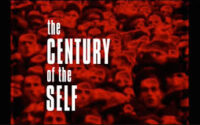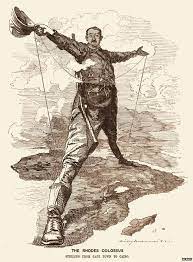Do We Live in a Brave New World? – Aldous Huxley’s Warning To The World
“If the first half of the twentieth century was the era of the technical engineers, the second half may well be the era of the social engineers — and the twenty-first century, I suppose, will be the era of World Controllers, the scientific caste system and Brave New World.”
Thirty years prior to penning these words, Huxley wrote his classic work of fiction, Brave New World. Set in the distant future, this book depicts a scientifically managed dystopian society. In Brave New World, the ruling authorities attain mass-compliance not through force, but by supplying the masses with endless streams of distracting entertainment and manipulating them with drugs and other technological methods.
Huxley wrote Brave New World as a warning; advances in science and technology, he believed, were paving the way for the type of society depicted in his book. And he cautioned that if a Brave New World type of order solidifies, it could be the “final” or “ultimate” revolution; the people will have their liberties taken from them, but they will enjoy their servitude and so never question it, let alone rebel. In a 1962 interview at Berkeley University, Huxley explained:
“It seems to me that the nature of the ultimate revolution with which we are now faced is precisely this: That we are in the process of developing a whole series of techniques which will enable the controlling oligarchy who have always existed and will always exist to get people to love their servitude.” Aldous Huxley, Interview – Berkeley University 1962
According to Huxley this Brave New World totalitarianism was most likely to solidify in the 21st century, and so in this video we are going to examine whether Huxley’s predictions are coming true: Do we live in a Brave New World?
In Brave New World Revisited, Huxley wrote the following:
“In 1931, when Brave New World was being written, I was convinced that there was still plenty of time. The completely organized society, the scientific caste system, the abolition of free will by methodical conditioning, the servitude made acceptable by regular doses of chemically induced happiness…these were coming all right, but not in my time, not even in the time of my grandchildren…Twenty-seven years later…I feel a good deal less optimistic than I did when I was writing Brave New World. The prophecies made in 1931 are coming true much sooner than I thought they would…The nightmare of total organization…has emerged from the safe, remote future and is now awaiting us, just around the next corner.” Aldous Huxley, Brave New World Revisited
In Brave New World, advances in psychology made it possible for the ruling authorities to use mind control to condition citizens from an early age to think and behave in ways that were submissive and conformist. Nearly 100 years after Huxley wrote his dystopian novel, has this type of conditioning left the realm of fiction and entered reality?
“Today the art of mind-control is in the process of becoming a science. The practitioners of this science know what they are doing and why. They are guided in their work by theories and hypotheses solidly established on a massive foundation of experimental evidence.”Aldous Huxley, Brave New World Revisited
While the idea of mind-control may sound like science-fiction, in the mid-to-late-20th century many prominent philosophers, psychologists and scientists joined Huxley in sounding the alarm bell that research into the fundamentals of this phenomenon were well underway. In 1953, the distinguished British philosopher Bertrand Russell explained:
“It is to be expected that advances in physiology and psychology will give governments much more control over individual mentality than they now have even in totalitarian countries.” Bertrand Russell, The Impact of Science on Society
The renowned 20th century American clinical psychologist Carl Rogers warned that the rapid development of the Behavioral Sciences, which is a “a cluster of scientific disciplines…including psychology, psychiatry, sociology, social psychology, anthropology, and biology…economic and political science…mathematics and statistics” (Carl Rogers, On Becoming a Person), was in the process of becoming what he called an “‘if-then’ science”. By this he meant that scientists and social engineers were discovering that if carefully constructed conditions are implemented in a society, then there is a high probability that the majority of citizens will respond to these conditions in predictable, and hence, controllable, ways. Or as he wrote in 1954:
“I believe that too few people are aware of the extent, the breadth, and the depth of the advances which have been made in recent decades in the behavioral sciences…the increasing power for control which it gives will be held by some one or some group; such an individual or group will surely choose the purposes or goals to be achieved; and most of us will then be increasingly controlled by means so subtle we will not even be aware of them as controls…it appears that some form of completely controlled society…is coming.” Carl Rogers, On Becoming a Person
In a report released in 2021, scientists on a subcommittee of the Scientific Advisory Group for Emergencies (SAGE) in the UK admitted to using “totalitarian” mind-control tactics to obtain mass-compliance. One scientist went as far as to state that he was “stunned by the weaponisation of behavioural psychology over the last five years”, while another admitted:
“You could call psychology ‘mind control’. That’s what we do… clearly we try and go about it in a positive way, but it has been used nefariously in the past. Psychology has been used for wicked ends.” Laura Dodsworth, A State of Fear
Along with conditioning the thoughts and behaviors of the citizens, in Brave New World the latest in technology is used by the ruling authorities to provide the population with “non-stop distractions of the most fascinating nature”. The purpose of this readily available entertainment was twofold: firstly, to ensure that the citizens did not pay attention to political and social realities, and secondly, to promote docility and stupidity and thus create a population that cared little for freedom. Is something similar happening today?
Whether intentionally imposed on society, or not, one thing is certain: Technology and the endless supply of stimulating yet morally degrading entertainment that flows from it is creating a passive, ignorant, and spiritually crippled population uninterested in resisting the implementation of its political chains – just as Huxley warned:
“As the art and science of manipulation come to be better understood, the dictators of the future will doubtless learn to combine [techniques of propaganda] with the non-stop distractions which, in the West, are now threatening to drown in a sea of irrelevance the rational [information] essential to the maintenance of individual liberty.”Aldous Huxley, Brave New World Revisited
But it is not just an endless supply of distractions which makes possible a Brave New World. Huxley also predicted that in the future certain forms of technology would be used to increase the suggestibility and obedience of a population, so that everyone can “be depended upon to behave almost as predictably as machines” (Huxley).
In Brave New World, the technology used for this purpose was called hypnopaedia, or “sleep-teaching”, which Huxley called “the greatest moralizing and socializing force of all time”. Every night, while asleep, citizens were exposed to propaganda and repeated suggestions from the State. Huxley based his idea of sleep-teaching on the science of hypnosis. Scientists have long known that when an individual is placed under hypnosis alpha waves are activated in the brain, just as they are when in a light sleep. In both cases, suggestibility is dramatically heightened. As Huxley explained:
“Most of the things that can be done with and to a person in hypnotic trance can be done with and to a person in light sleep. Verbal suggestions can be passed through the…cortex to the midbrain, the brain stem and the autonomic nervous system. If these suggestions are well conceived and frequently repeated…new patterns of feeling can be installed and old ones modified, posthypnotic commands can be given, slogans, formulas and trigger words deeply ingrained in the memory.” Aldous Huxley, Brave New World Revisited
While not subjects of sleep-teaching, many people in the modern world watch television, on a near daily basis, for hours on end. Scientists have known for decades that television watching activates alpha waves in the brain, thus placing the individual in a hypnotic-like trance – primed for suggestions and ready to be programmed. The neurosurgeon Adam Lipson explains:
“There have been EEG studies that demonstrate that television watching converts the brain from beta wave activity to alpha waves, which are associated with a daydreaming state, and a reduced use of critical thinking skills.” Adam Lipson
When in a television-induced hypnotic state, cliches and slogans from the mainstream media, moral values and ideological principles from shows and movies, and suggestions from commercials, politicians, celebrities, and state-sponsored propaganda bypass the critical faculties and seep into the foundations of the mind. Over time the typical television watcher is transformed into an “opinionated robot” – his or her evaluations of the world are mindless regurgitations of whatever has been absorbed from the TV.
Nearly seventy years ago, the medical doctor Joost Meerloo warned of the hypnotizing dangers of television, dangers which now apply to computers, smart-phones, and any other technology which turns the human being into a mesmerized spectator of a screen.
“No longer does man think in personal values, following his own conscience and ethical evaluations; he thinks more and more in the values brought to him by mass media…television keeps him in continual awe and passive fixation. Consciously he may protest against these anonymous voices, but nevertheless their suggestions ooze into his system.” Joost Meerloo, The Rape of the Mind
In Brave New World, suggestibility was heightened not just through the use of technology, but also with a super drug called Soma.
“The systematic drugging of individuals for the benefit of the State…was a main plank in the policy of the World Controllers.”Aldous Huxley, Brave New World Revisited
Soma had no physiological drawbacks. When taken in small doses it stimulated a sense of bliss, and in larger doses it generated pleasant hallucinations and a refreshing sleep. It provided what Huxley called a “holiday from reality”, and most importantly, it made the citizens highly submissive.
“As well as tranquillizing, hallucinating and stimulating, the soma of my fable had the power of heightening suggestibility, and so could be used to reinforce the effects of governmental propaganda.” Aldous Huxley, Brave New World Revisited
Today, not one Soma-like super-drug, but a whole concoction of drugs including but not limited to alcohol, marijuana, psychotropics, opioids, and sleeping-pills, are readily used as a means of escaping reality. The widespread use of drugs in our day has socio-political ramifications. For a drugged-up society, just like a dumbed-down society, is more easily conditioned into servitude. The chemical-dependent is not a politically vigilant person who is ready to defend liberty – and as Meerloo wrote:
“Any man who escapes from reality through the use of alcohol and drugs is no longer a free agent; he is no longer able to exert any voluntary control over his mind and his actions…Alcoholism and drug addiction prepare the pattern of mental submission so beloved by the totalitarian brainwasher…Drugs…can be used to make man a submissive and conforming being.” Joost Meerloo, The Rape of the Mind
The society of Brave New World was also organized into a scientific caste system. Prenatal genetic engineering produced children destined to belong to one of five castes. The highest caste, Alpha, was made up of citizens genetically engineered to be intelligent, strong, and beautiful. The lowest caste, the Epsilons, were short, ugly, stupid, and treated as slaves. Each of the castes was forbidden to intermingle. Is a scientific caste system possible today?
While the widespread use of prenatal genetic engineering may not be on the near horizon, postnatal genetic engineering and the technological augmentation of the brain and body is in its initial stages. We are at the beginning of a fateful era in which man may merge with machine, and the result could be the formation of a two-tiered scientific caste system.
There will be a caste of human beings who welcome the merger with technology in the expectation of transcending biological limitations. And there will be an all-too-human caste, composed of people who resist the merger with technology. What restrictions will be placed on those in this latter caste? What surveillance and control will be possible on those who accept technological augmentations? What will be the “carrots on a stick” to entice people to transition into a transhumanist era? Time will tell.
“The world of tomorrow will witness a tremendous battle between technology and psychology. It will be a fight of technology versus nature, of systematic conditioning versus creative spontaneity.” Joost Meerloo, The Rape of the Mind
If Huxley’s predictions are coming true, what can be done about it?
Perhaps nothing needs to be done. Perhaps the Brave New World totalitarianism which Huxley warned of is not feasible in the long term – not as stable as he thought. Perhaps this form of social order is destined to crumble under its own oppressive weight.
But perhaps Huxley was right. With enough advances in science and technology a Brave New World order can be achieved, and once fully instituted, this will be the final revolution. Human beings will be born and bred in conditions of technocratic servitude that they will not challenge or resist, because it will be a servitude that most of them love and defend. If this should turn out to be the case, Huxley’s final words from Brave New World Revisited will prove prescient.
“Perhaps the forces that now menace freedom are too strong to be resisted for very long. It is still our duty to do whatever we can to resist them.” Aldous Huxley, Brave New World Revisited



